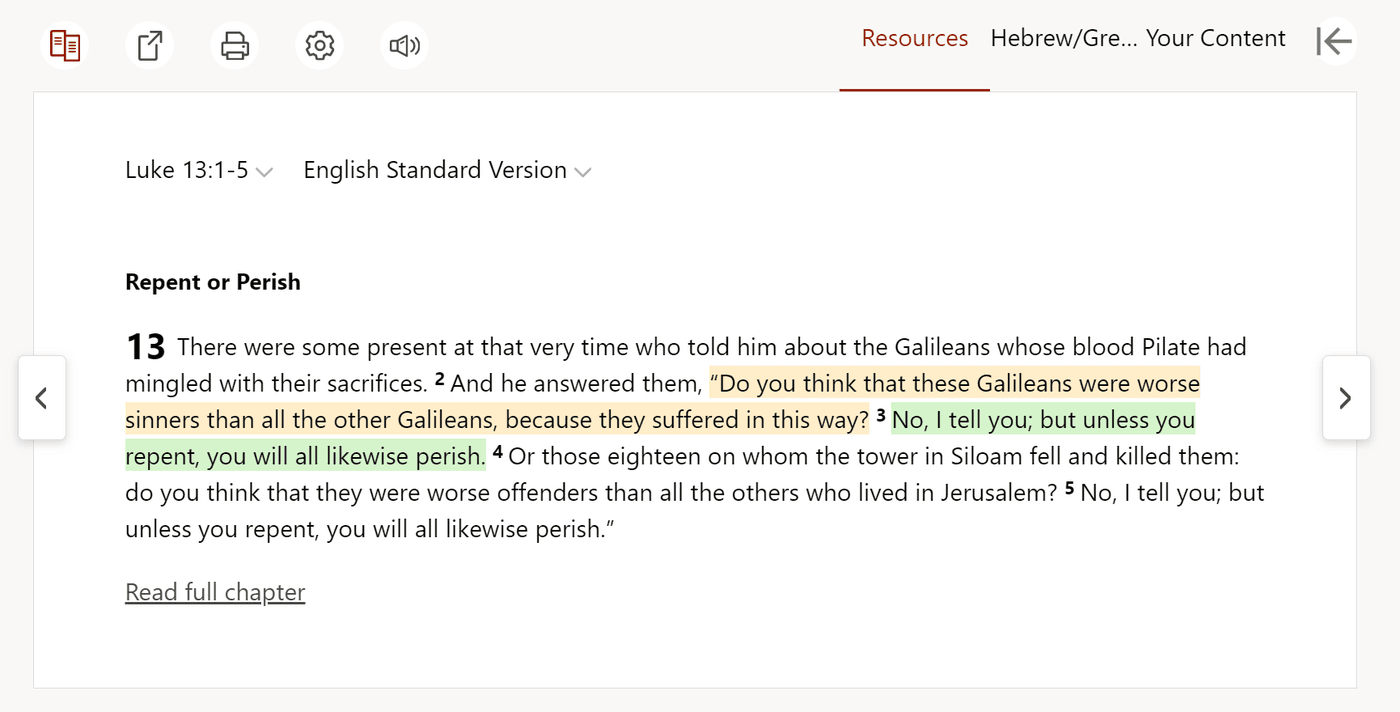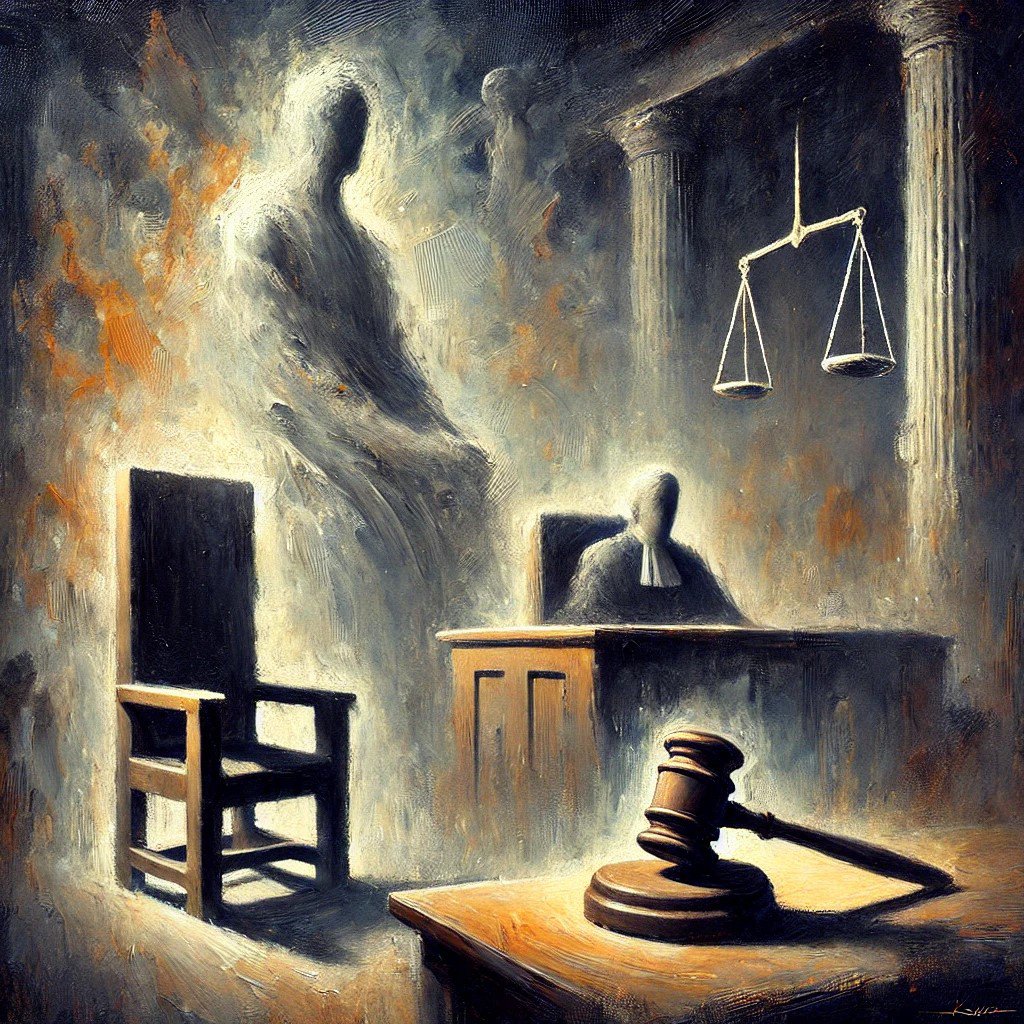
Theodicy
 img:biblegateway.com
img:biblegateway.comWhy?
Why does a particular natural or moral evil befall certain people and not others?
How did God decide who would die on 9/11/2001 and who would live?
Lately, people are asking why a candidate for the presidency of the USA has suffered two assassination attempts in the course of two months.
At the most basic, humanistic level, these attempts can make sense. Someone wants to kill a person he has been taught to hate and/or fear.
But I don’t want to focus on the humanistic reasons behind attempted murder, nor do I want to focus on the unique nature of the specific attempts at killing President Trump.
I am interested in focusing our attention on the ancient problem of theodicy.
Theodicy
The term “theodicy” comes from the 18th-century philosopher Gotthold Lessing.
The practice of theodicy is much older than that!
Simply defined, theodicy is the attempt to vindicate the justice of God in ordaining or permitting natural and/or moral evil. (Kolb, “Speaking the Gospel Today”)
Even more simply, theodicy is when we expect God’s reasoning to make sense to a human brain.
The internet has scrubbed a lot of the idiotic rhetoric that followed 9/11, but there is still this obvious theodicy where Jerry Falwell, two days after the buildings fell, claimed that God was judging America because of abortion, feminism, and homosexuality.
It’s theodicy. We don’t have a single revelation from God that says he is going to allow airplanes to fly into buildings because of an abortion policy or any other human sin.
The assassination attempts on Trump’s life have been blamed on Trump’s rhetoric. Others have blamed the anti-Trump rhetoric. Is this theodicy? Maybe.
And maybe not. Political rhetoric is powerful, and can motivate all kinds of stupid public behaviors.
I don’t know if those who are blaming rhetoric for assassination attempts are attempting to let God off the hook for allowing it to happen. If they are, it’s theodicy. If not? Well then, no.
Thankfully, none of our current political candidates have been murdered. But the next time a public tragedy unfolds, watch out for those who attempt to justify God’s sovereign authority by imposing humanistic reasoning upon Him.
God in the Dock
What should a Christian person think when it comes to understanding human tragedy?
That’s what the people in the story from Luke 13 are trying to do.
In Luke 13, if we can “fill in the blanks”, Jesus faced the claim that certain people died in a tragedy because they were more deserving of God’s wrathful judgment than those who had survived.
It’s the same kind of theodicy that Falwell was guilty of in 2001.
C.S. Lewis touched on this problem in one of his most famous essays titled, “God in the Dock”.
Lewis was an Englishman, and in England, the “dock” is the witness stand. The “Bench” is where the judge sits.
Theodicy places man in the position of judging God, thus “God in the dock”.
Lewis wrote, “The ancient man approached God… as the accused person approaches his judge. For the modern man the roles are reversed. He is the judge: God is in the dock. (The man) is a kindly judge: if God should have a reasonable defense for being the god who permits war, poverty and disease, (the man) is ready to listen to it. The trial may even end in God’s acquittal. But the important thing is that Man is on the Bench and God in the Dock.”
One thing is certain, none of the Biblical authors ever put God in the Dock.
There are Bible stories of people who attempt to do so, but those stories always result in warning against doing so. Read Jonah chapter 4!

The Problem of Evil
Ok, so Christians should avoid theodicy. Lesson learned.
I’m interested in a deeper question: How should Christians talk about God amongst a culture which routinely puts God on trial for allowing things that make no sense to human beings?
It is natural for people to want God to be known as good.
It is also natural for people to want God to be known as universally powerful.
These two - God’s goodness and God’s power - they don’t add up in the face of 3,000 innocent dead.
Archibald MacLeish’s character “Nickles” has the following to say in the play, “J.B.”;
I heard upon his dry dung heap
That man cry out who could not sleep:
“If God is God, he is not good;
If God is good, he is not God.”
Yes. That’s the conundrum. We recognize evil in the world. There are assassins. There are terrorists. There are abortionists and those who celebrate them.
We also recognize an all-good, all-powerful God. And evil becomes a problem without a logical answer.
Christians don’t help matters when they, to quote Gerhard Forde, try to “do God the favor of making Him less objectionable.”
Jesus answers the theodicies of his time by reminding us that all people have sinned, and without the forgiveness that comes through repentance they we (all) doomed. (See Luke 13 again at the top of this article.)
This should signal us Christians to avoid any answers that attempt to minimize the spiritual impact of sin and the chilling reality of God’s judgment.
But Jesus does not attempt to justify evil by taking the bait of theodicy. He simply states what should be obvious: all sin is sin.
Jesus, Quickly Come
The first thing we must remember is that nothing we can say to a grieving person is going to stop the flow of tears immediately.
Nothing we say to someone who is angry with God will immediately remove the anger. We must be OK with that.
Our presence may be all we can offer at those moments when God’s power and goodness seem to have disappeared.
And our presence does provide comfort. As God dwells in us, our presence introduces God’s presence into the life of one who is suffering.
Remember that. It happens automatically. Thank you, Holy Spirit!
When the time finally comes to speak, it is best to stick to what we know.
I know that Jesus suffered the enormous human tragedy of bearing the world’s burden - my burden - of sin.
I know that in His death, evil got its final answer: defeat.
I know that the defeat of evil will be fully realized, not today, but at the return of Jesus Christ.
I know that in His resurrection, I received the strength to face evil and tragedy and grief, whether it is brought on by my own doing or by some other victimizer.
And so I know that evil’s fleeting but oppressive regime will not take me down with it.
Therefore I can face anything, knowing that Jesus is with me.
This is the only hope there is.
All of Job’s friends are speaking the lies of theodicy as Job tries to understand his life of tragedy.
But Job speaks a word that sends evil fleeing, “I know that my redeemer lives, and at the last he will stand upon the earth. And after my skin has been thus destroyed, yet in my flesh I shall see God.”
Let’s memorize that word as we discipline ourselves to avoid theodicy.
Let’s memorize that word as we come alongside our suffering and angry neighbors.
Let’s have that word at the ready whenever we ourselves are grieving.
And let’s all pray, “Jesus, quickly come.”
Amen.



